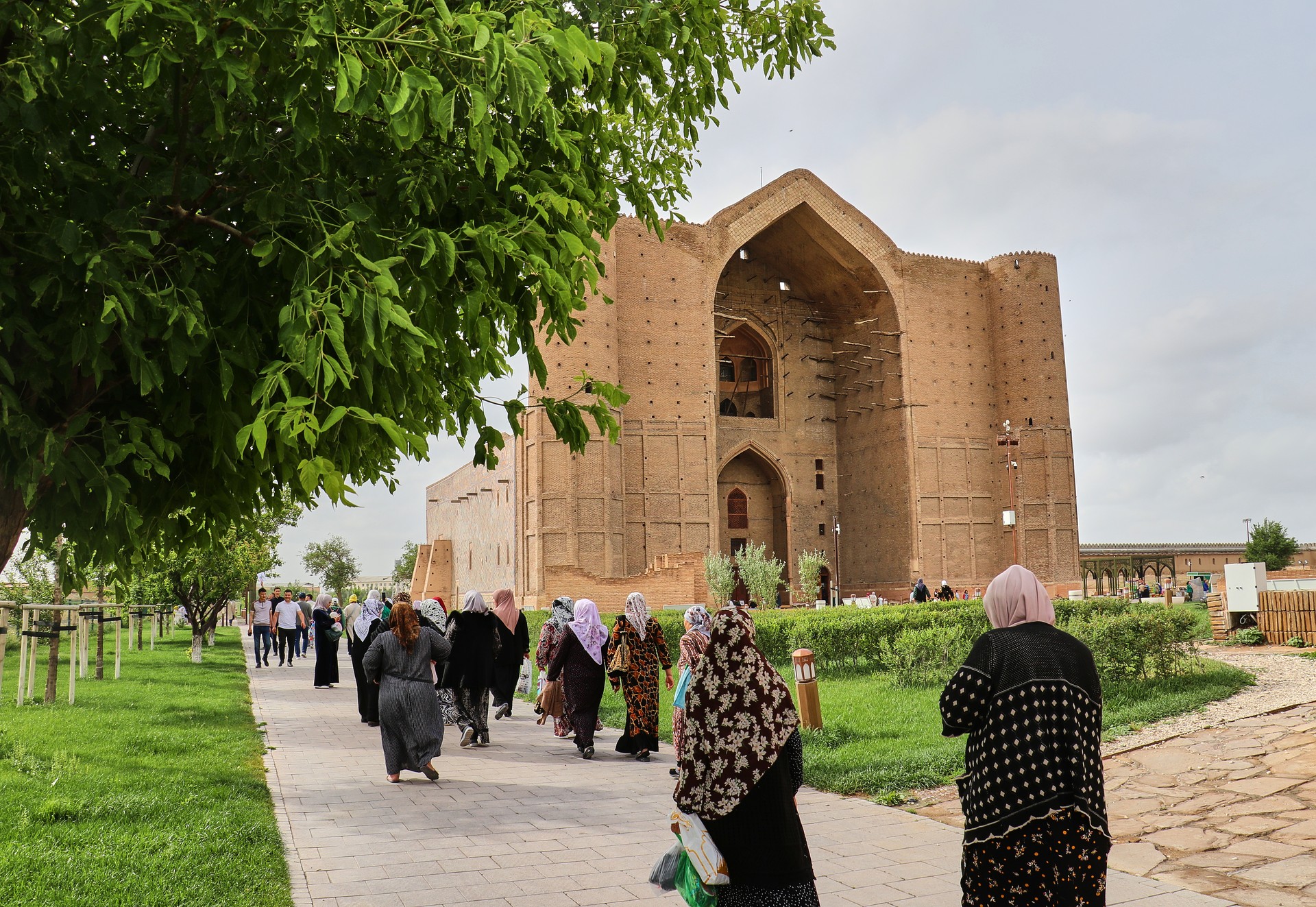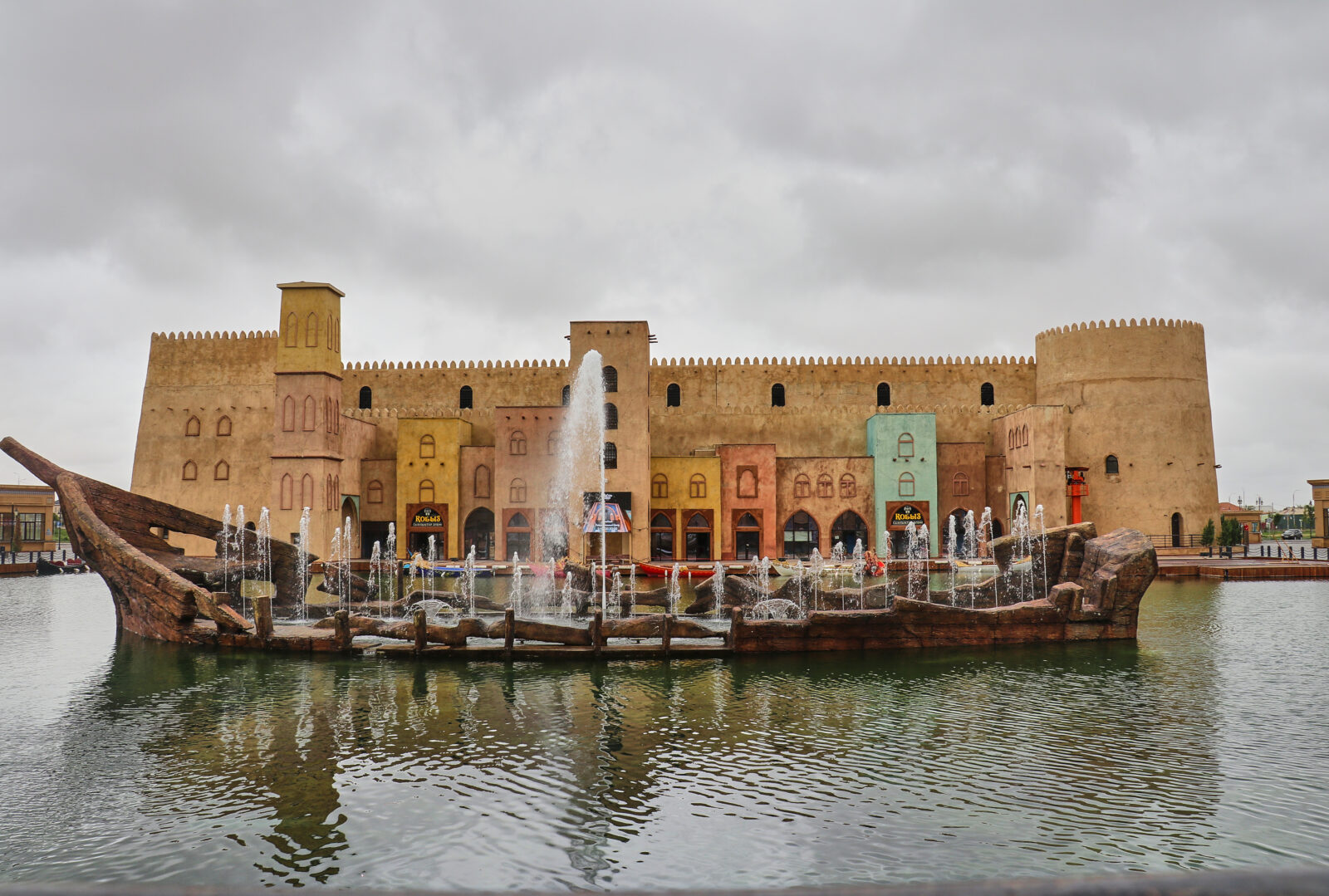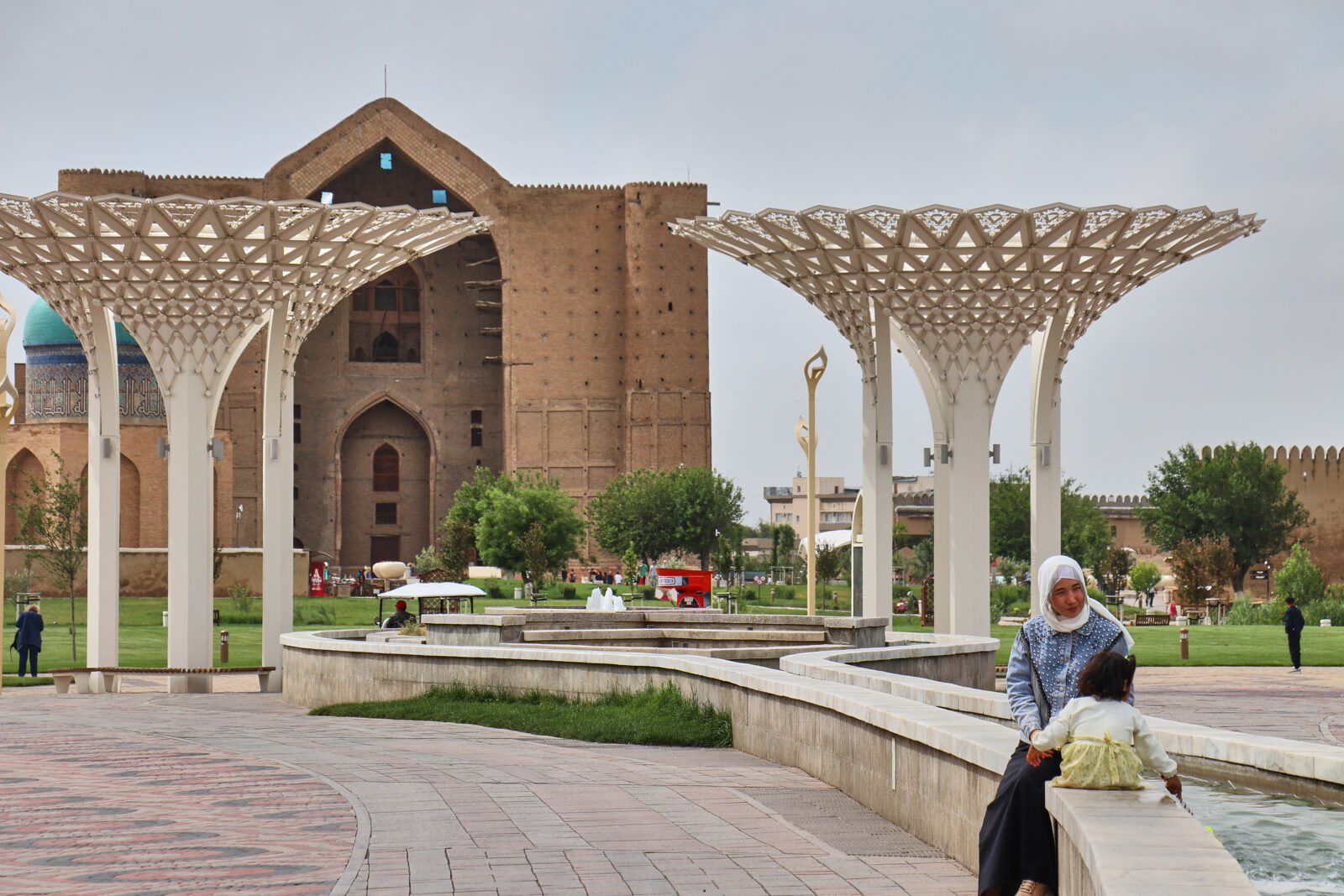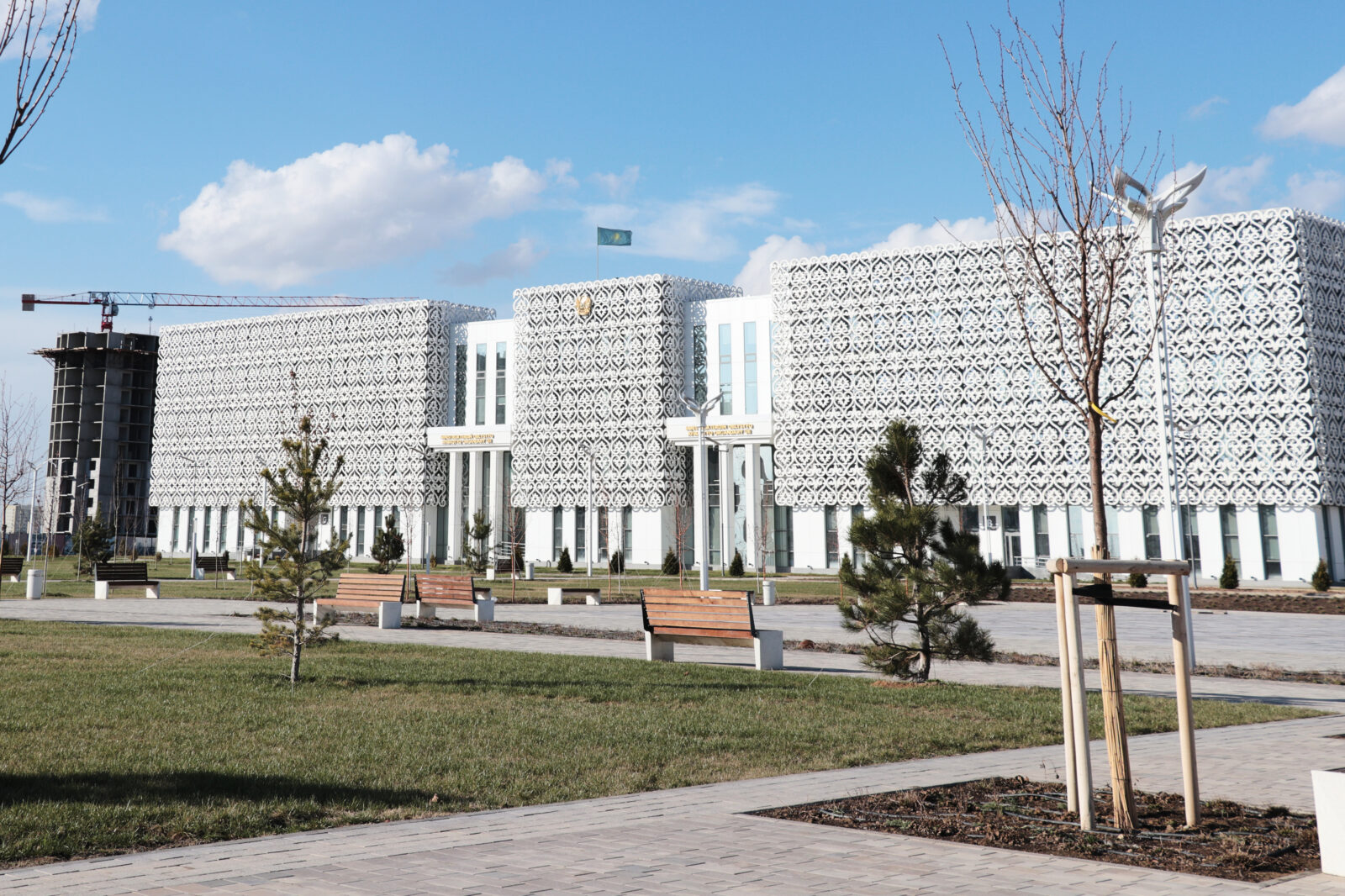
The Lower House of Kazakhstan’s Parliament approved a draft law granting special status to Turkistan, home to the iconic Khoja Ahmed Yasawi Mausoleum and recognized as the "Spiritual Capital of the Turkic World."

Nurlan Baybazarov, Kazakhstan's economy minister, introduced the draft law during Parliament's weekly session. The legislation aims to officially designate Turkistan as the country’s "spiritual, historical, cultural and tourism hub."
The city, located in southern Kazakhstan, was declared the "Spiritual Capital of the Turkic World" during the 2021 Organization of Turkic States Summit. This new status reinforces Turkistan’s historical and cultural significance, while also safeguarding its sacred structures.

The draft law imposes strict regulations on construction around the Khoja Ahmed Yasawi Mausoleum to preserve its authenticity.
Buildings exceeding 7 meters in height or those that clash with the area's historical aesthetics in terms of scale, color, or materials will be prohibited.
The legislation includes provisions to support local artisans, covering their expenses through the city’s budget.
Additionally, the authority of the Turkistan Governor’s Office will be expanded to facilitate the city’s development.

Temir Kirikbayev, a member of Parliament, emphasized that the law aims to solidify Turkistan's status as the "Spiritual Capital of the Turkic World," preserve its historical fabric, enhance its tourist appeal, and foster socioeconomic growth.
He noted that Turkistan welcomed more than 1.5 million tourists in 2023. "This law will pave the way for Turkistan to transform into a thriving city with modern infrastructure that preserves its cultural uniqueness, attracting Turkic peoples, tourists, and investors within the next 5–10 years," Kirikbayev said.
The draft law now moves to the Senate for approval. Once ratified, it will require the President's signature to come into effect.